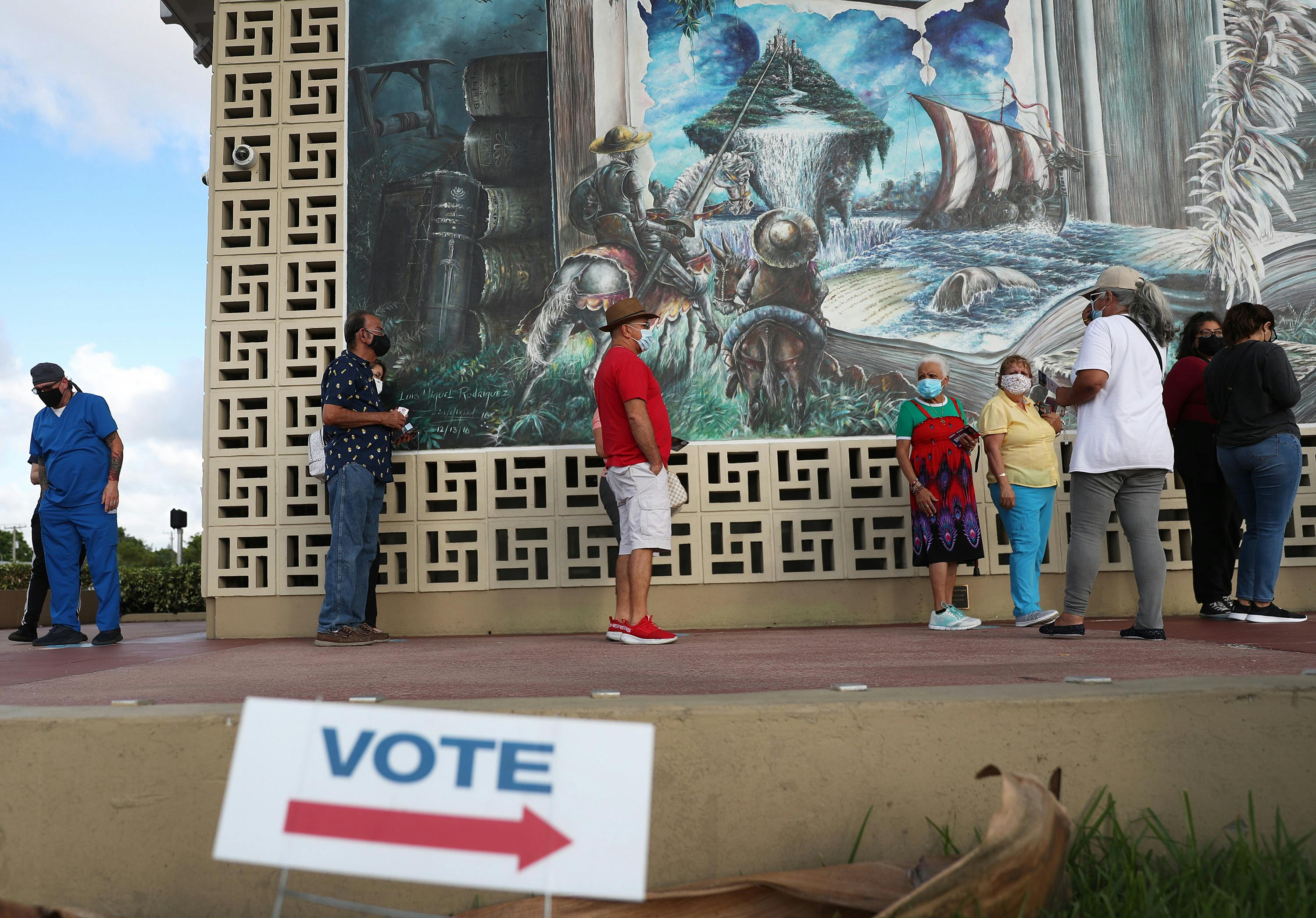|
 Joe Raedle/Getty | |||
| The election is four days away. I don’t have anything new to say about it, really. I tried to write a two-sentence newsletter this week, but my editor told me I couldn’t do that. (What is the opposite of censorship?) Everyone seems tired, but no one gets to be tired. Joke’s on us. | |||
| Advertising  | |||
| People will vote on Tuesday (after, in many cases, overcoming the extreme, cruel, and unnecessary hardships of that process). Then some hours or days or weeks will pass, and we’ll have a result. That will be something, but not everything. We will still have a pandemic fed by our failed politics, twin and mutually reinforcing crises of police and private right-wing violence, a recession and mass precarity, a hunger cliff that more and more people are being shoved off every day, and a rapidly unfolding climate disaster that has us careening between wildfires and hurricanes. There isn’t a lot of art here; it’s basically a panic list. Things are bad, and the election, despite being cast as a singularly world-historical event, isn’t the big fight. I’ll see you next week, though, when maybe we’ll know more about the ground we’re standing on. It took me about an hour to vote. The rest will take longer. —Katie McDonough, deputy editor | |||
| Advertising  | |||
 | |||
| Ten Moves, Two Tents, and Five Months of a Housing Reckoning in Minneapolis Nadine Little had never been homeless before, but between March and August, after losing her housing, she moved 10 times—from parks to hotels and back again. In the span of that time, she became part of the Minneapolis Sanctuary Movement, a coalition of housed and unhoused people organizing together, reclaiming public space, and demanding permanent solutions to the housing crisis. This, by Gili Ostfield, is the story of that summer and what might come next. | |||
| Election Season Is Wildfire Season. These Voters Lost Everything. Julia Thomas on a community in Oregon where organizers and neighbors are coming together to help people rebuild their lives after losing everything—and figure out how to vote without a permanent address. | |||
| Getting Out the Vote in the Maze of Mass Incarceration Melissa has a comprehensive and dizzying piece on the barriers people face in casting their ballots after being sucked into our criminal legal system—an apparatus designed to deprive and punish, inside and outside its walls. | |||
 | |||
| Won’t someone think of billionaires? | |||
| Advertising  | |||
 | |||
| Support Independent, Issue-Driven Journalism | |||
| | |||
| Copyright © 2020 The New Republic, All rights reserved. | |||
